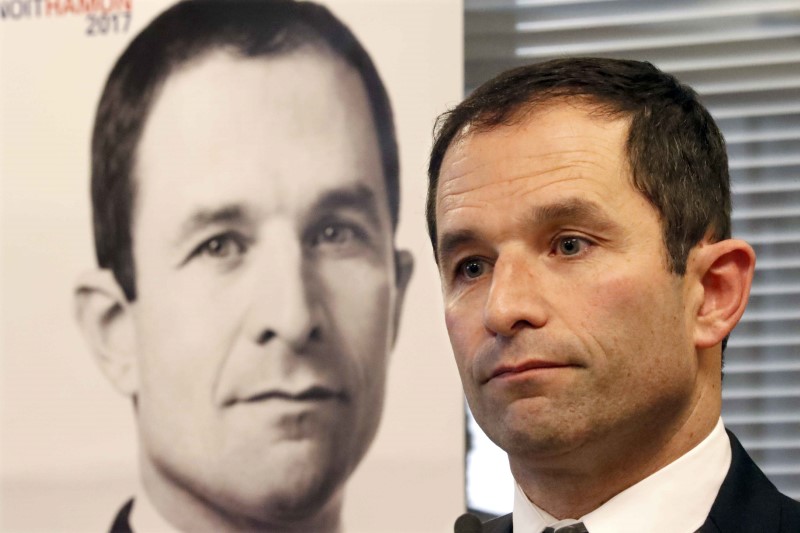By Brian Love
PARIS (Reuters) - A French socialist outsider who wants to legalise cannabis and give all adults welfare payments of 600 euros a month has jumped into the political spotlight after a poll showed a surge in his support two weeks before a presidential primary.
Benoit Hamon, an admirer of U.S. left-winger Bernie Sanders, is currently ranked a distant third by most pollsters in the race to run for president in the name of the Socialist Party.
But a Harris Interactive poll published on Wednesday showed his support doubling to 22 percent - stirring memories of the run-up to November's right-wing primary when the winner, Francois Fillon, surged from third place to trounce the favourites.
That figure would put Hamon - nicknamed Fillon-in-waiting by pundits - right on the heels of second-placed Arnaud Montebourg, on 25 percent. Both still trail former prime minister Manuel Valls's 43 percent - though that was the scale of the lead that Fillon overcame for his victory.
At a news conference focused on his proposals for an increase in security and defence spending, Hamon played down the poll figures, saying he was concentrating on his plans before the primary, taking place in two rounds on Jan. 22 and 29.
"Our policy of criminalising cannabis has been an outright failure," said the 48-year-old, who argues that legalising cannabis would hurt criminal gangs and free up police.
Defence spending and mass police hiring are priorities for most if not all contenders in France's presidential race after a series of attacks that killed more than 230 people in the past two years.
Hamon said the defence budget would rise from just under two percent of GDP to three percent if he went on to win the presidential ballot in May.
The former minister is proposing radical welfare reforms on the lines being tested by Finland, where public money would be handed out without recipients having to prove they were seeking employment.
At an initial cost of 19 billion euros ($20.08 billion), it would give all people aged 18 to 25 a no-strings handout of 600 euros, before broadening out to all adults, at an estimated cost of more than 300 million euros a year.
Hamon also proposes raising the minimum wage and the salaries of France's five million public servants.
Hamon, unlike the more moderate, business-friendly Valls, argues that political pledges to revive economic output, as measured by GDP counts, are illusory.
"It (growth) is not going to come back, and even if it did it would do nothing to eradicate poverty and inequality," the 48-year-old told Liberation newspaper.
